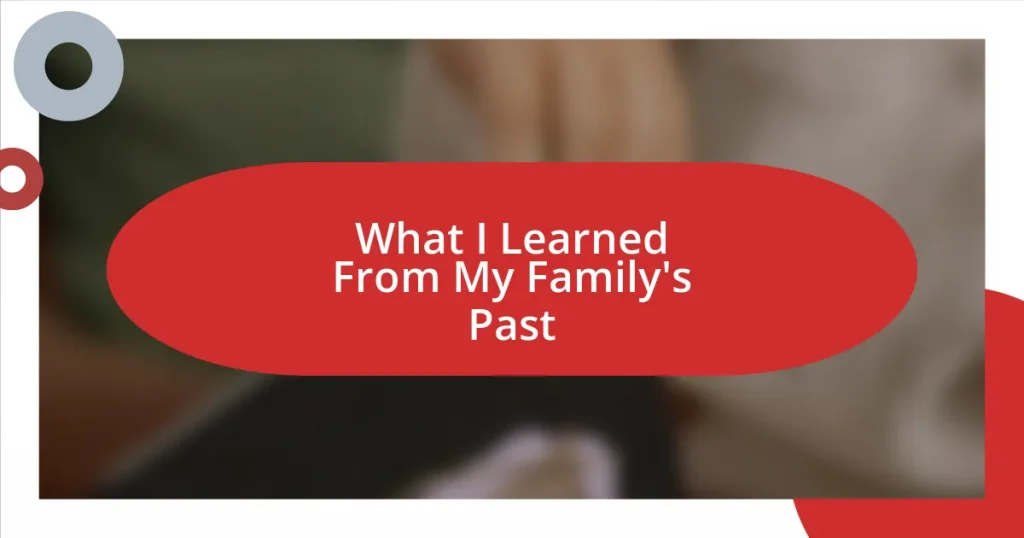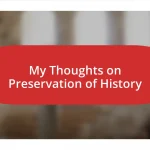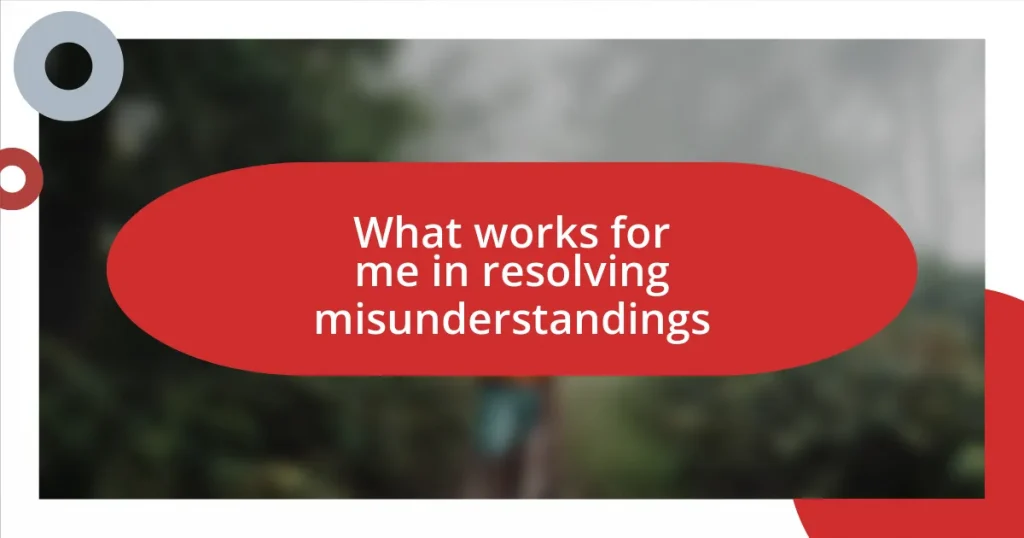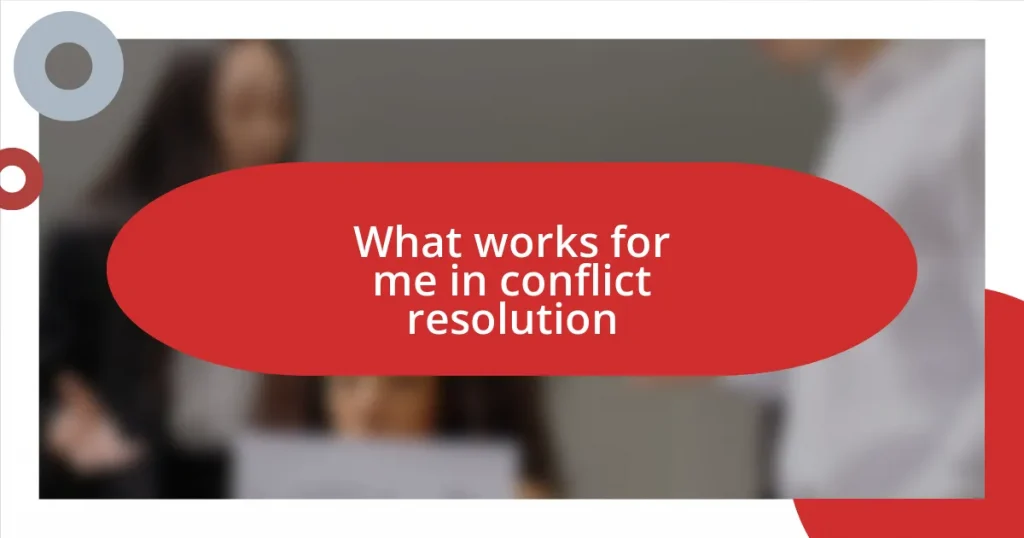Key takeaways:
- Family history reveals interconnectedness, shaping identities through shared stories and experiences.
- Family traditions foster bonds, teach values, and create lasting memories that connect generations.
- Lessons from ancestral mistakes provide insights into decision-making, communication, and financial prudence.
- Preserving family legacy involves sharing stories, traditions, and written reflections, ensuring wisdom is passed to future generations.
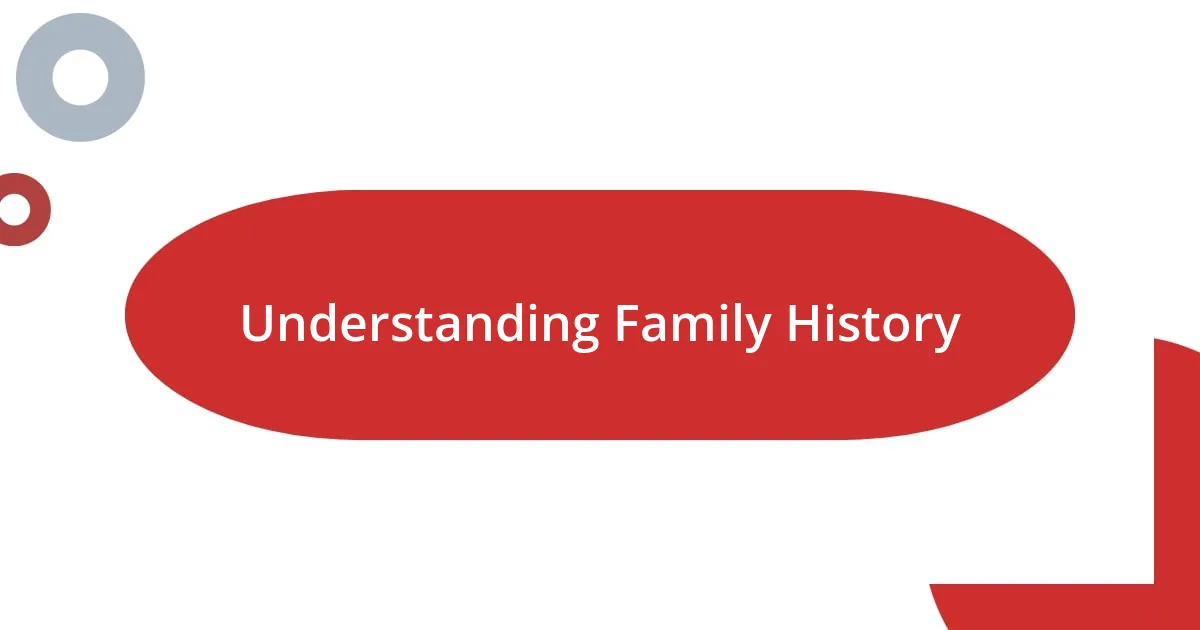
Understanding Family History
Diving into my family’s history felt like opening a long-forgotten book. As I sifted through old letters and photographs, I stumbled upon a dusty journal my grandmother kept during the war. Reading her experiences, I was struck by the resilience and hope threaded through her words. How can one diary hold so much emotion and history? It made me realize just how interconnected our lives are with those who came before us.
Exploring milestones such as marriages, births, and even tragedies offers a profound glimpse into the family dynamics that shaped our identities. I vividly recall a family reunion where we shared stories that illuminated parts of our family tree I never knew existed. Listening to my uncle’s tales of our great-grandparents’ immigration journey made me ponder: How many sacrifices did they make for our future? It was in that moment I truly grasped the weight of our lineage and how it contributes to who we are today.
What struck me most was the realization that understanding family history isn’t just about names and dates; it’s about the emotions and stories behind them. I often reflect on how my mother’s childhood shaped her nurturing nature. Each layer of our history holds lessons and insights, prompting me to ask, “What traits have I inherited?” It’s fascinating to contemplate how much of our past still influences our lives today.
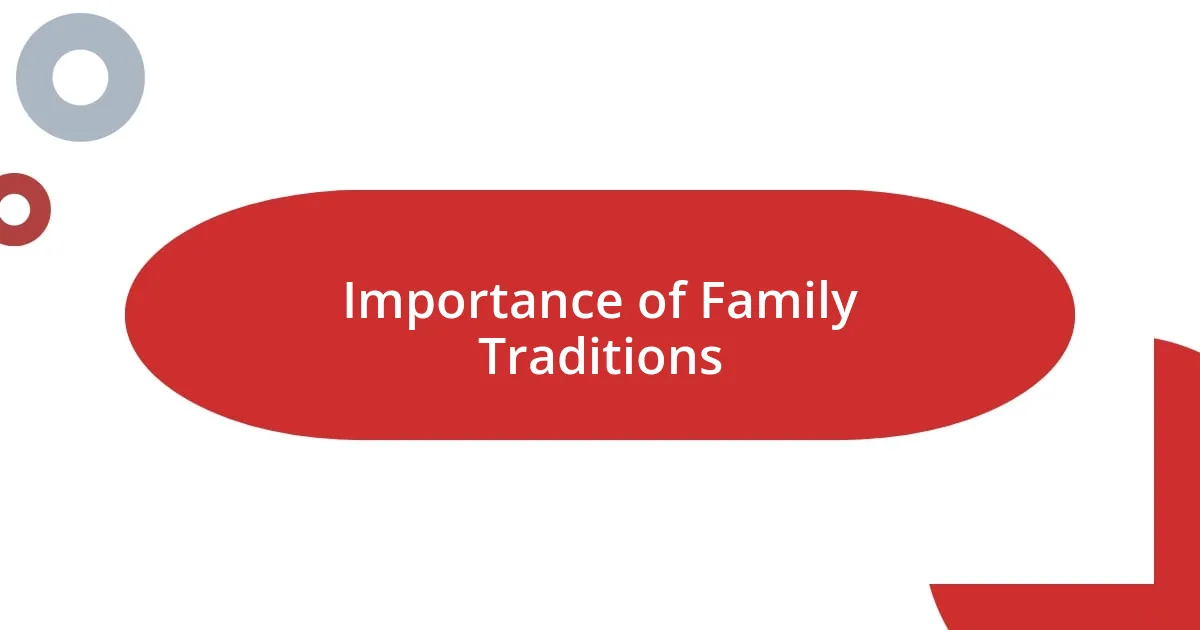
Importance of Family Traditions
Family traditions serve as the threads that stitch together the fabric of our collective identity. I fondly remember Saturday dinners at my grandparents’ house, where recipes had been passed down through generations, each dish telling a story of love and connection. Those meals were more than just food; they were a celebration of our heritage, connecting us to our roots and reminding us of the values we cherish. Isn’t it fascinating how a simple dinner can evoke such strong feelings of belonging?
As I reflect on the significance of these customs, I’m reminded of the holiday rituals we practiced. Each year, we gathered to create handmade ornaments for our Christmas tree, a tradition initiated by my great-grandmother. These moments became cherished memories, reinforcing our bond as a family. I often wonder, how would we find such joy in the holiday season without those special traditions? They ground us, offering continuity amidst the changes life brings.
In my experience, family traditions also serve as a vital teaching tool. They provide a space to pass down values and lessons from one generation to the next. For instance, during our summer camping trips, my father would share stories from his childhood, emphasizing the importance of resilience and adaptability. I can’t help but reflect on how those teachings have shaped my views. Can you recall a tradition that taught you something meaningful? Those moments truly connect us to our past while guiding our future.
| Aspect | Family Traditions |
|---|---|
| Connection | Create bonds and strengthen relationships |
| Teaching | Pass down values and cultural heritage |
| Memory | Facilitate recollection of shared experiences |
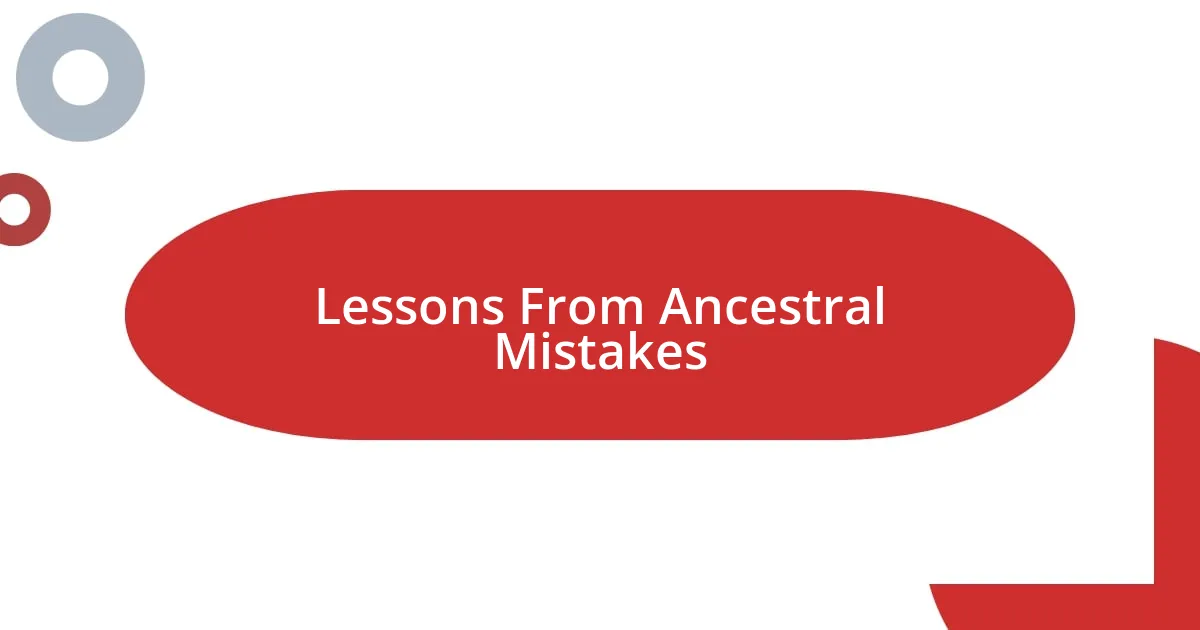
Lessons From Ancestral Mistakes
Understanding our family history often brings the realization that mistakes made by our ancestors can serve as valuable lessons for us today. I remember a story my dad shared about his grandfather, who was incredibly passionate but often impulsive in business decisions. One poignant episode involved a failed investment that nearly ruined their family. Listening to this tale offered me not just a glimpse into my family’s past, but also an important reminder: patience and careful consideration are vital, especially when navigating life’s choices.
Reflecting on these ancestral blunders sparks a deep sense of connection and responsibility within me. From navigating relationships to managing finances, I’ve learned to be more thoughtful as I consider my actions. I think about how people often follow the same patterns, and here’s a concise list of what I gleaned from such familial errors:
- The Importance of Communication: Just like my great-grandparents let unresolved tensions fester, I realize that open dialogue is crucial in preventing misunderstandings.
- Financial Prudence: Their mistakes remind me why I prioritize saving and planning. Witnessing the fallout from their poor financial choices motivates me to do better.
- Value of Reflection: Learning from their impulsiveness highlights why it’s essential to pause and reflect before acting, allowing for wiser decision-making.
These ancestral tales create a tapestry of lessons woven through time, urging us to make different choices rooted in hindsight rather than repeating the past.
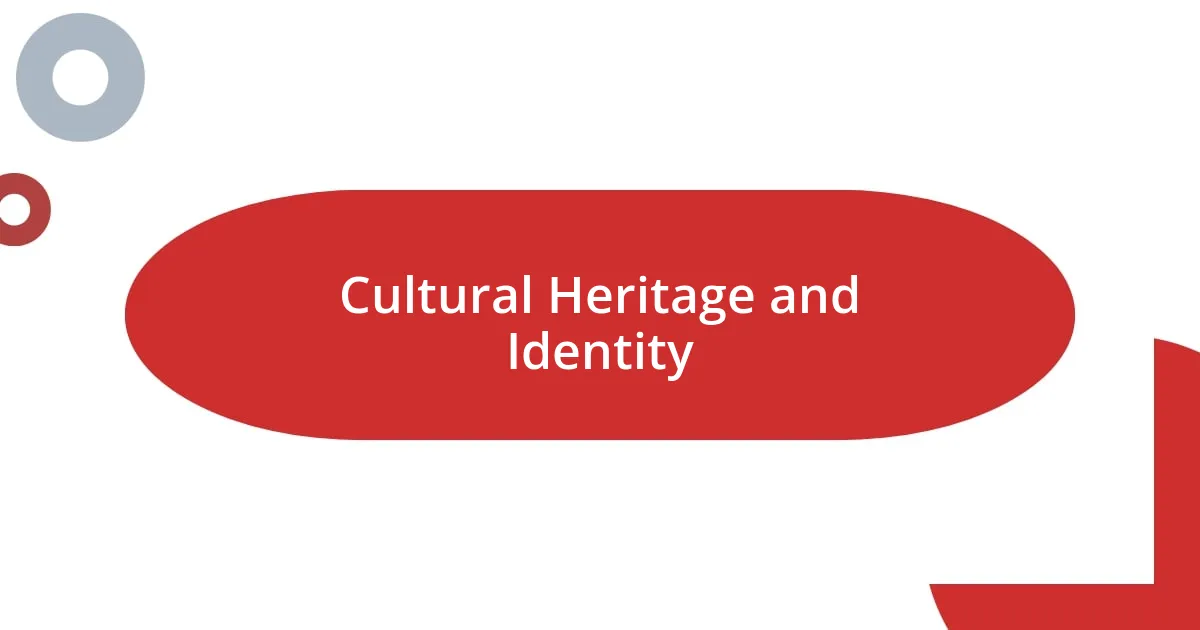
Cultural Heritage and Identity
Cultural heritage shapes who we are in profound ways, often reflecting in our everyday lives. I vividly recall attending a traditional festival that has been part of my family for generations. The vibrant colors, the music, and the dance added layers to my identity, reminding me that I belong to something larger than myself. In that moment, I couldn’t help but wonder—how many of us realize the power of these experiences in forming our sense of self?
I’ve found that the stories we share about our heritage not only reinforce our identity but also create a bridge to the past. For instance, during family gatherings, my aunt often recounts tales of our ancestors overcoming challenges with unwavering strength. Listening to her speak, I feel an intense connection to those who came before me. It’s fascinating to consider: how do the victories and struggles of my family shape my aspirations today?
Embracing our cultural heritage can also inspire us to preserve those values for future generations. I think about the significance of language in my family; my grandmother’s fluent storytelling in our native tongue has always enriched our gatherings. As I strive to maintain that connection through teaching my children, I find joy in knowing that every word carries the weight of our history. Isn’t it incredible how cultural pride can ignite a passion to pass on those traditions?
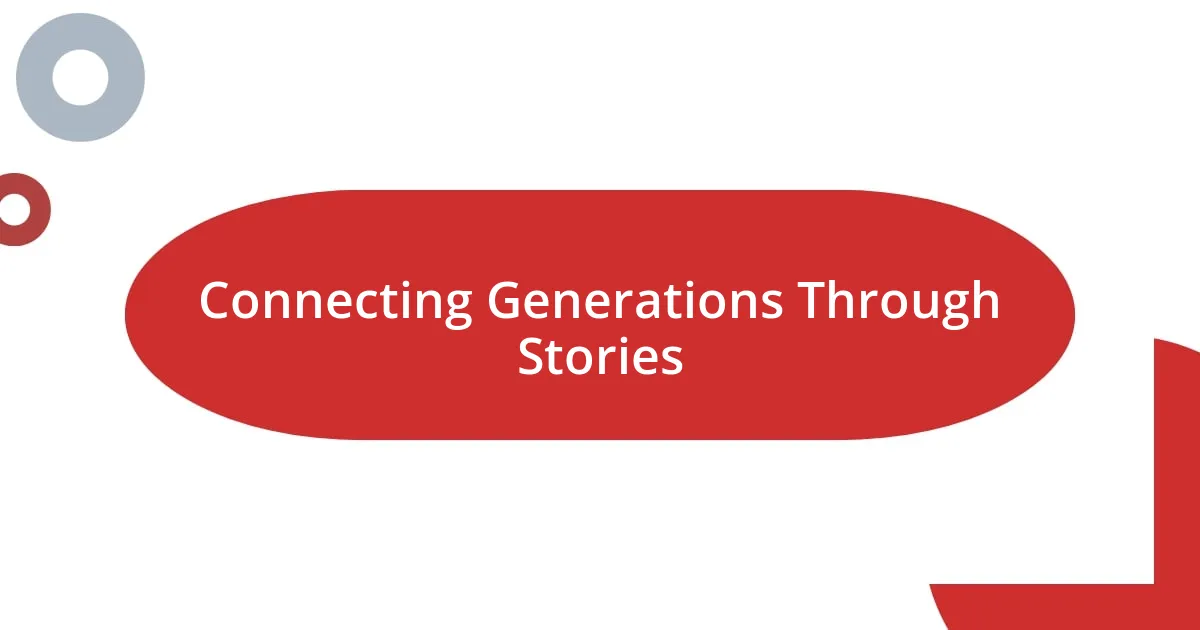
Connecting Generations Through Stories
The power of storytelling in connecting generations cannot be understated. I recall sitting around the dinner table as a child, listening to my grandmother recount her childhood adventures during the war. Her eyes sparkled as she painted vivid pictures with her words. What struck me most was the way her stories bridged the gap between our different worlds, making me feel both grounded in my roots and excited about my place in the present. Isn’t it amazing how a simple story can transcend time, allowing us to walk alongside our ancestors?
As I now share similar tales with my own children, I feel a profound responsibility to keep those memories alive. One evening, as I narrated my mother’s first day at school, I noticed the way my kids leaned in, captivated by every detail. Their curiosity reminded me of my own awe when I was their age, listening to family lore. What role does the act of storytelling play in shaping their understanding of who we are? I believe it enriches their perspective, fostering empathy and strength through connections woven into our family’s narrative.
In reflecting on these shared moments, I realize they hold a transformative power. Each story acts as a thread, binding generations through shared experience and emotion. After relaying tales full of laughter and struggle, I’ve seen how my children absorb not just the events themselves but the values behind them. Aren’t we all searching for meaning in our lives? Through these stories, we find that meaning, cultivating a sense of belonging that echoes through the generations.
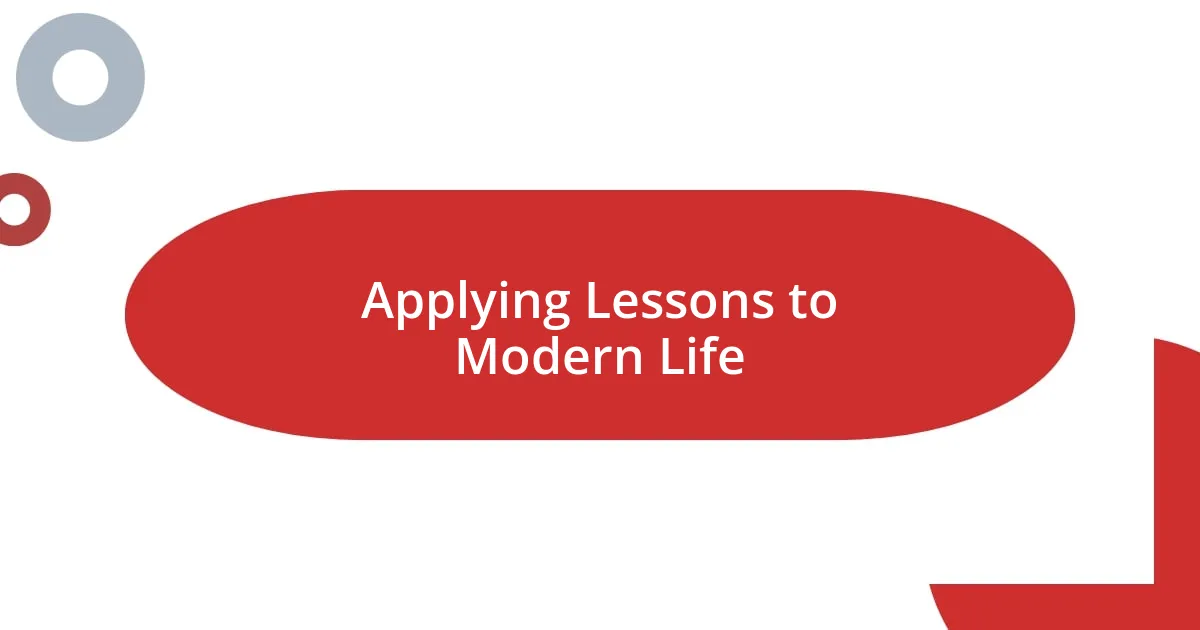
Applying Lessons to Modern Life
Reflecting on family lessons, I rarely fail to notice how they guide me in modern situations. For example, I once faced a daunting job interview that made me question my capabilities. In that moment, I remembered my grandfather’s tenacity—how he built a life from nothing and never backed down from challenges. It sparked a fire within me, reminding me to channel that same determination. Isn’t it remarkable how the values of the past can act as a lighthouse in our current storms?
In the chaos of today’s lifestyle, I’ve come to appreciate the importance of patience, a lesson I gleaned from my parents’ relationship. They navigated hardships with grace, instilling in me a belief that patience is not just waiting but actively nurturing growth. It was during a difficult time in my career that I realized rapid results don’t always reflect true progress. This realization encouraged me to employ a more patient approach to achieving my goals. Can you also see how these timeless principles can offer clarity amidst our daily distractions?
I love applying these lessons in practical ways, often seeing how they manifest in my parenting. I emphasize cooperation and generosity at home, just like my parents did. Whenever my children disagree, I share a story about my siblings helping each other through tough times. I can see the light in their eyes as they grasp the essence of teamwork and kindness. Isn’t it heartwarming to realize that we can influence the next generation by weaving our past experiences into their daily learning?
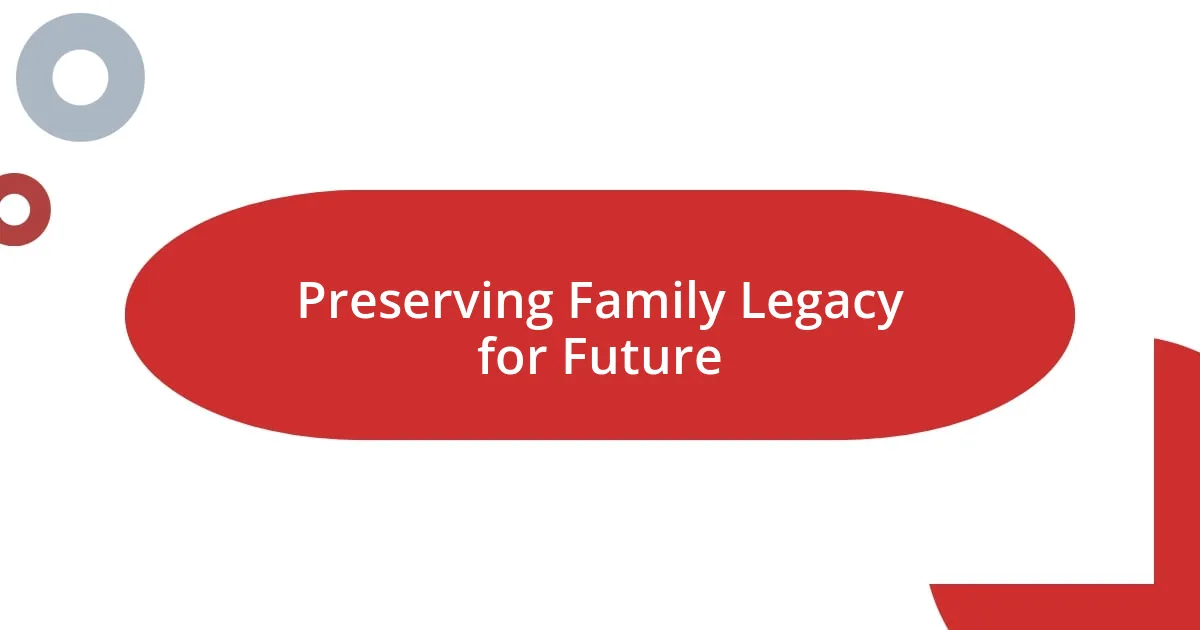
Preserving Family Legacy for Future
When it comes to preserving family legacy, I’ve realized it’s not just about storing old photographs and heirlooms; it’s about nurturing the stories and values that shape our identities. I often find myself flipping through a dusty photo album filled with images of family reunions from decades ago. It’s incredible how those snapshots serve as portals to our shared history, evoking emotions and stories waiting to be told. Have you ever experienced that same rush of nostalgia when revisiting your family’s past?
In my own journey, I’ve taken to writing letters to my children, sharing the lessons learned from generations before them. One evening, I penned a note about my great-aunt’s resilience during a challenging time. I expressed how her strength has influenced my approach to adversity, believing it would inspire my kids as they face their own obstacles. The thought that these words could someday guide them is a powerful motivator. Isn’t it amazing how our written legacies can become a source of wisdom for those we love?
Moreover, I believe that incorporating tangible traditions can be instrumental in passing down our legacy. For instance, every Thanksgiving, my family gathers around to cook recipes handed down through generations. It’s more than just a meal; it’s a celebration of our heritage. As we chop vegetables and share laughs, I see the enthusiasm in my children’s eyes as they learn not just the recipes, but the stories behind them. What traditions do you cherish that connect you to your family’s roots? Embracing such practices not only preserves our legacy but also strengthens our bonds with the younger generation, ensuring that the essence of who we are continues to thrive.










